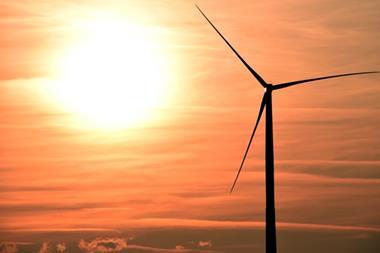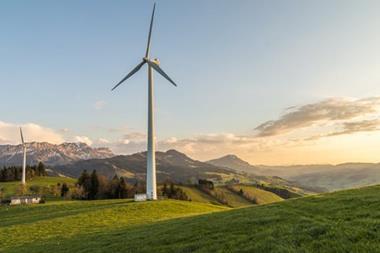Danish pension funds PensionDanmark and PFA announced an agreement with Danish energy firm SEAS-NVE to develop a bid to finance and operate a new “energy island” in the North Sea, which will be the base for up to 10GW off-shore wind turbines.
The funds said they would initially invest DKK400m (€53.6m) to develop the project.
The plan is part of the Social Democratic government’s climate action plan presented yesterday, which includes the creation of what it said would be the world’s first two energy islands.
PensionDanmark and PFA said the island they are financing - dubbed VindØ (wind island) - will match the energy output of 25 traditional wind farms, and originated from a government plan announced in summer 2019.
The investment from the trio would enable the project to be realised with no funding from the government, the funds said.
Explaining its concept of “energy island”, the government said the new idea was to have a single structure rather than individual offshore wind farms. The “islands” could be physical structures, it said, such as platforms or artificial sand islands, which were connected to several countries’ electricity grids as well as to surrounding offshore wind farms.
According to the government’s plan - which has yet to be ratified in parliament - the second energy island to be built on the island of Bornholm in the Baltic sea. Together, output from two islands will be twice that of Denmark’s current offshore wind energy capacity, the government said.
Torben Möger Pedersen, PensionDanmark’s chief executive officer, said: “An energy island in the North Sea is an important part of an economically sound expansion of offshore wind capacity.
“It also has the potential to become an export product to the parts of the world where the expansion of offshore wind will take place in the next few decades,” he added.
The pension funds said the island would consist of submersible concrete boxes, where the energy would be stored and sent ashore and will be positioned approximately 100km offshore, ensuring that it could not be seen from land.
Kasper Ahrndt Lorenzen, PFA Group CIO, said: “Denmark is a pioneer in driving the green transition, and it requires significant investments to meet the ambitious goals the government has set.”
VindØ would add even more momentum to the green transition, while simultaneously generating returns for Denmark’s pension savers, he said.
The firms said VindØ could be continuously expanded in line with the development of energy storage technology, also allowing for potential future connection to other countries around the North Sea.
The pension funds said Copenhagen Infrastructure Partners was supporting the three parties in the deal.
To read the digital edition of the latest IPE Real Assets magazine click here.














